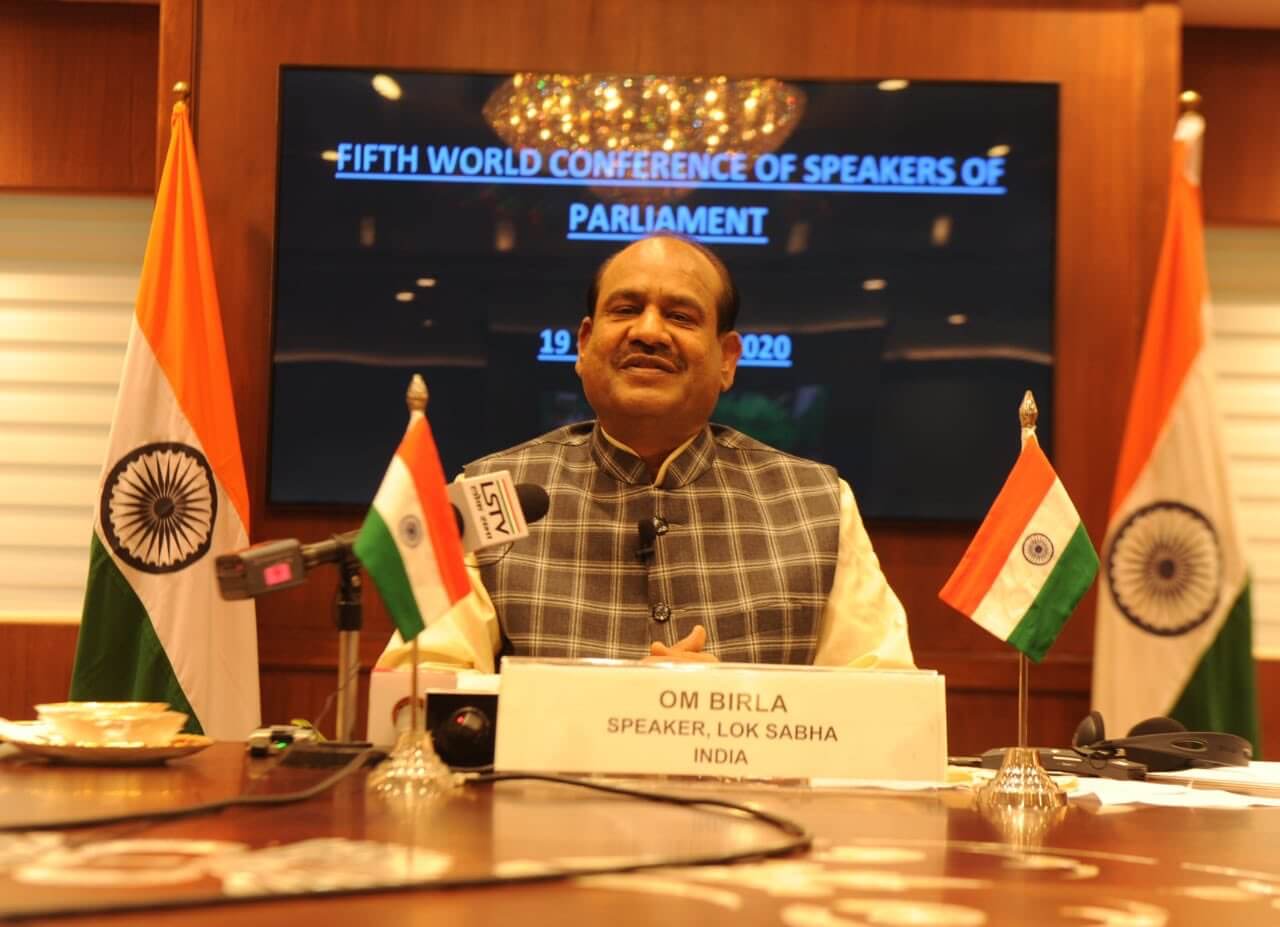On Thursday, the Speaker of India’s Lower House, Om Birla, addressing the 5th World Conference of Speakers of Parliament, called upon the international community to boycott Pakistan for its role in funding and supporting terrorism. The conference was organised by the Inter-Parliamentary Union in Geneva in collaboration with the Parliament of Austria and the United Nations. Birla’s statement was in pursuance of India’s “Right of Reply” during a special event named “Countering Terrorism and Violent Extremism: The perspective of victims’ today”.
During his speech, Birla said, “India exercises its Right of Reply to a statement by Pakistan, a country whose PM glorified terrorist “Osama Bin Laden” as a ‘martyr’ from its Parliament.” Om Birla’s statement comes in response to Pakistan’s repeated attempts to gather international support against India. Pakistani Prime Minister Imran Khan has been pressuring Turkey to use its leverage in the Organisation of Islamic Cooperation (OIC)—the 57-member Organisation of Islamic Cooperation (OIC), widely considered to represent the collective voice of Muslim countries—to advocate Pakistan’s position on Kashmir. Its attempts thus far have been blocked by the Maldives, Saudi Arabia, and the UAE.
Also Read: India-Pakistan Differences Deepen Over Kashmir, Ram Mandir, and Terror-Funding
Birla further said, “Pakistan PM admitted there are nearly 40,000 militants on its soil. Pakistan’s aggressions against J-K in 1965, 1971, 1999 (Kargil), attack on Mumbai and Parliament, Uri, Pulwama etc. This shows Pakistan’s state-sponsored policy of terrorism, as evident in the inaction against the likes of Hafiz Saeed, Masood Azhar and Ehsanullah Ehsan.” Consequently, he urged the international community “to isolate Pakistan to increase the cost of engaging in terror activities”.
He also highlighted the report by the UN Analytical Support Sanctions Monitoring Team. The United Nations Security Council’s 1267 monitoring committee, in its “26th report on the Analytical Support and Sanctions Monitoring Team concerning the ISIS, al-Qaida in the Indian Subcontinent (AQIS)”, reported that Pakistani nationals continue to spearhead Islamic State and Al Qaeda activities in South Asia. Further, it said that the “total number of Pakistani foreign terrorist fighters in Afghanistan … is estimated at between 6000 and 6500”.
Also Read: Afghanistan Writes to the UN Raising Concern About Cross-Border Attacks by Pakistan
India is also preparing to discuss Pakistan’s active participation in terror-funding before the Financial Action Task Force (FATF), an inter-governmental body that acts as a “global money laundering and terror-financing watchdog”. An official representing the Indian government said, “The Pakistani establishment has to prove that it is serious about dismantling the terror-funding infrastructure, which is possible only by ensuring that cases against the key figures and organisations involved in raising funds and masterminding terror attacks attain finality and such elements are punished. Given that no such concrete steps are being taken, we need to flag the issue.”
Meanwhile, amidst growing tensions between the two countries, Pakistan’s Federal Minister for Railways, Sheikh Rashid Ahmad, during an interview on Wednesday, warned, “If Pakistan gets attacked by India, there is no scope for a conventional war. This will be a bloody, final and nuclear war.” He went on to say, “We have very calculated weapons which are small and perfect. Our weapons will save Muslim lives and will only target regions. Pakistan range now even includes Assam. Pakistan has no option in convention war, therefore India knows if something will happen it will be the end.” He also spoke of the possibility of regional collaboration between China, Russia, Nepal, Sri Lanka and Pakistan. This is not the first time a Pakistani leader has warned India of the possibility of a nuclear war. In 2019, soon after India’s decision to revoke Jammu and Kashmir’s special status, Pakistani Prime Minister Imran Khan warned India of a “stand-off” between the two “nuclear countries”.

